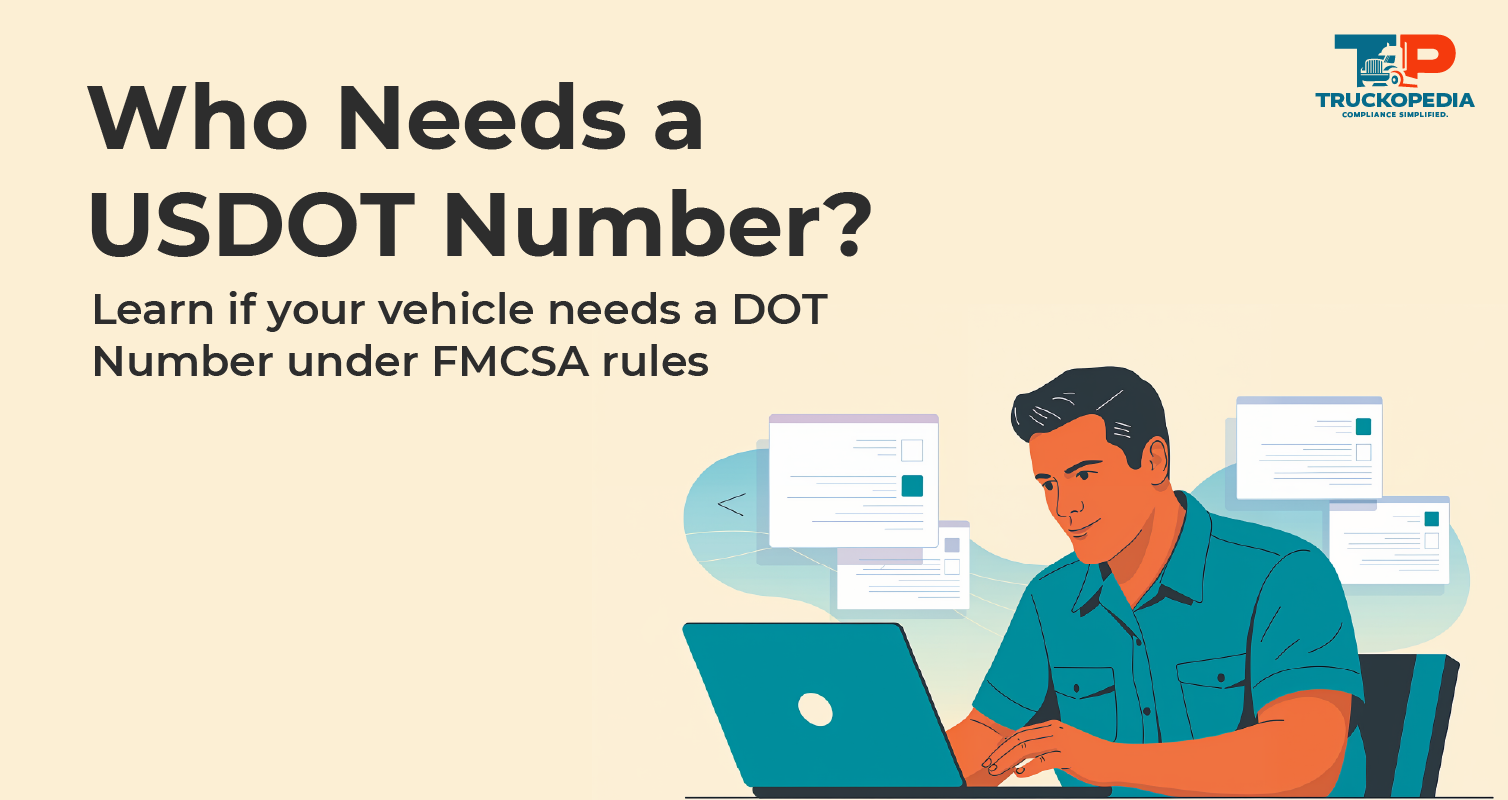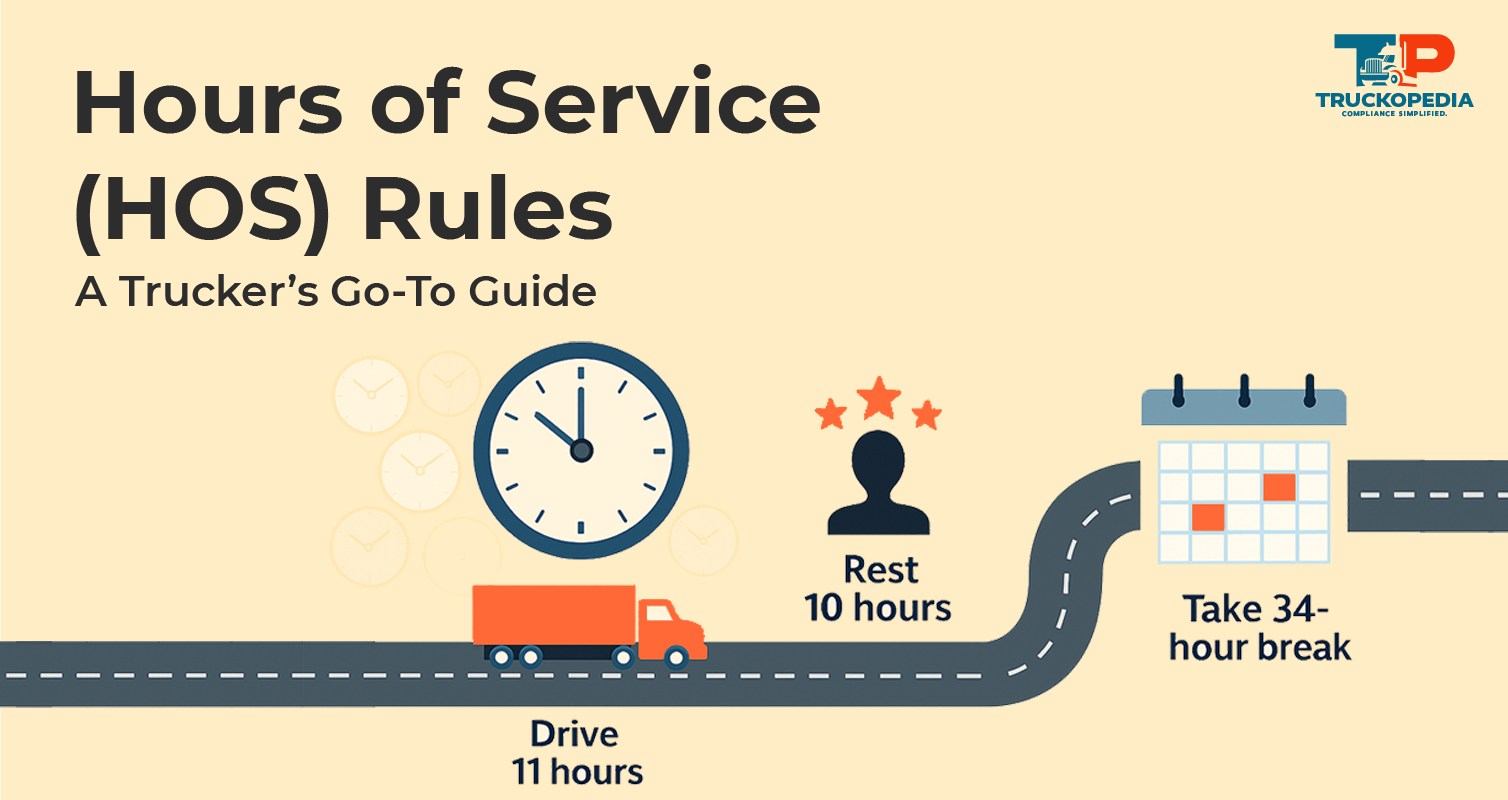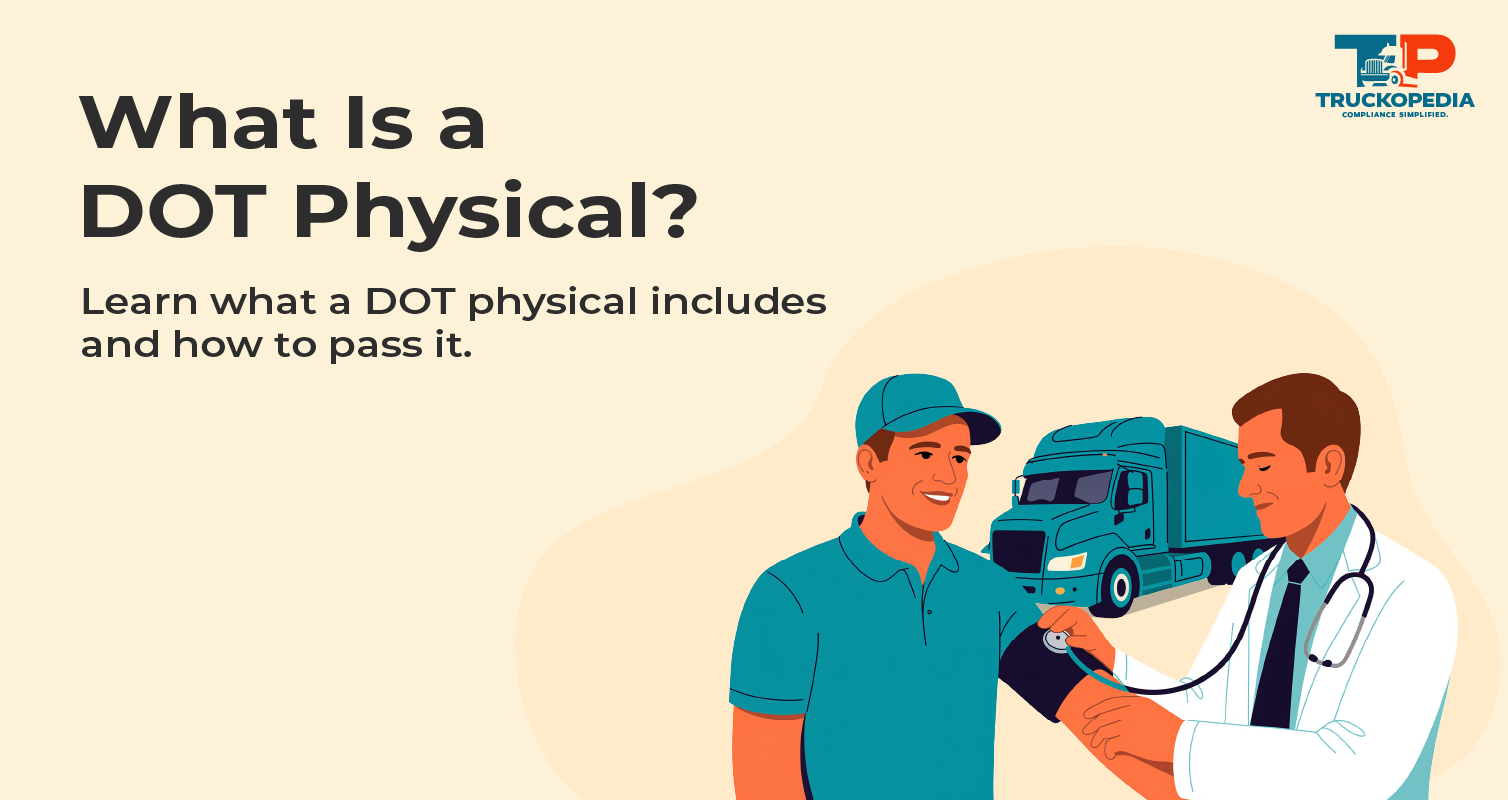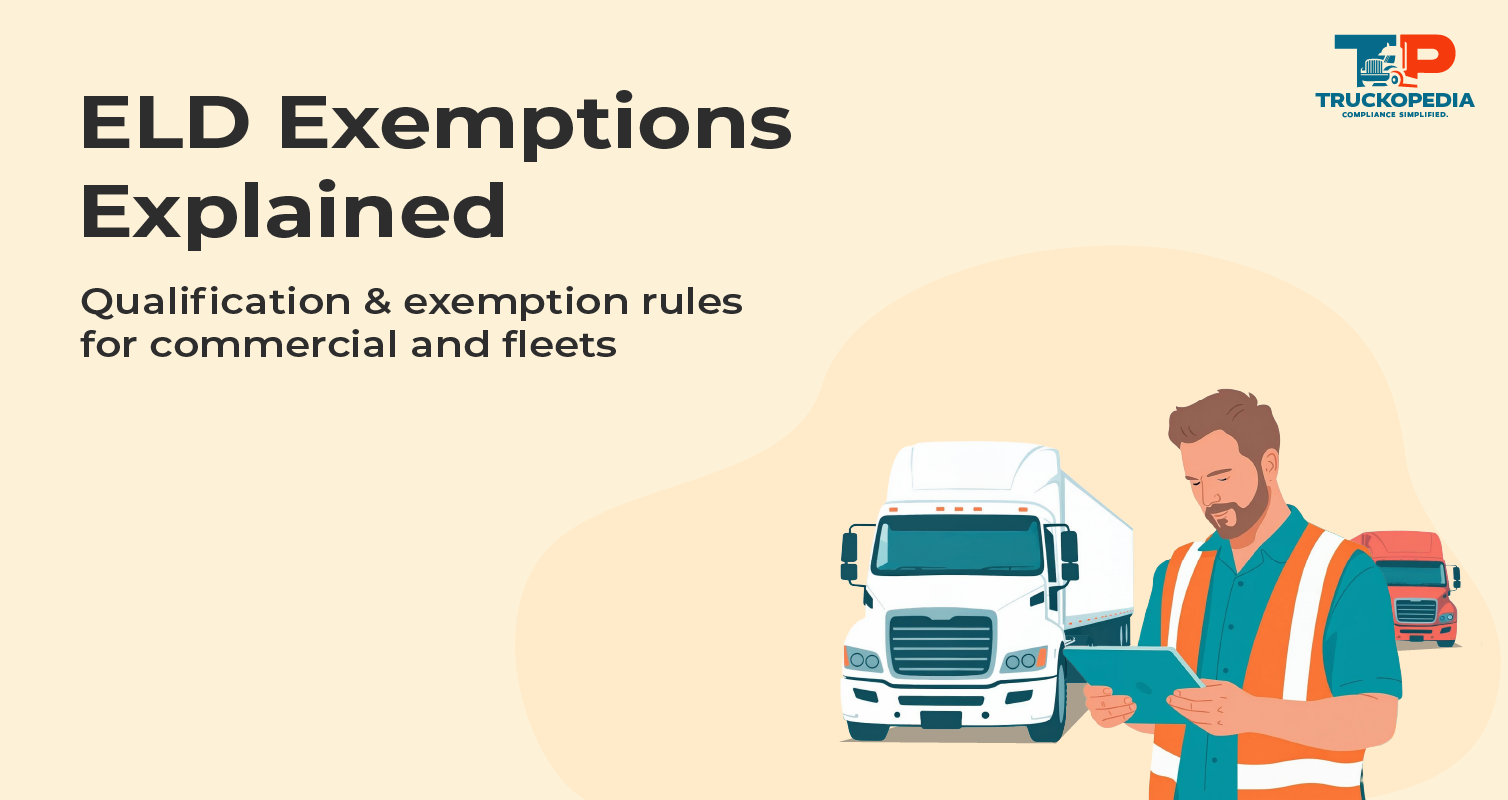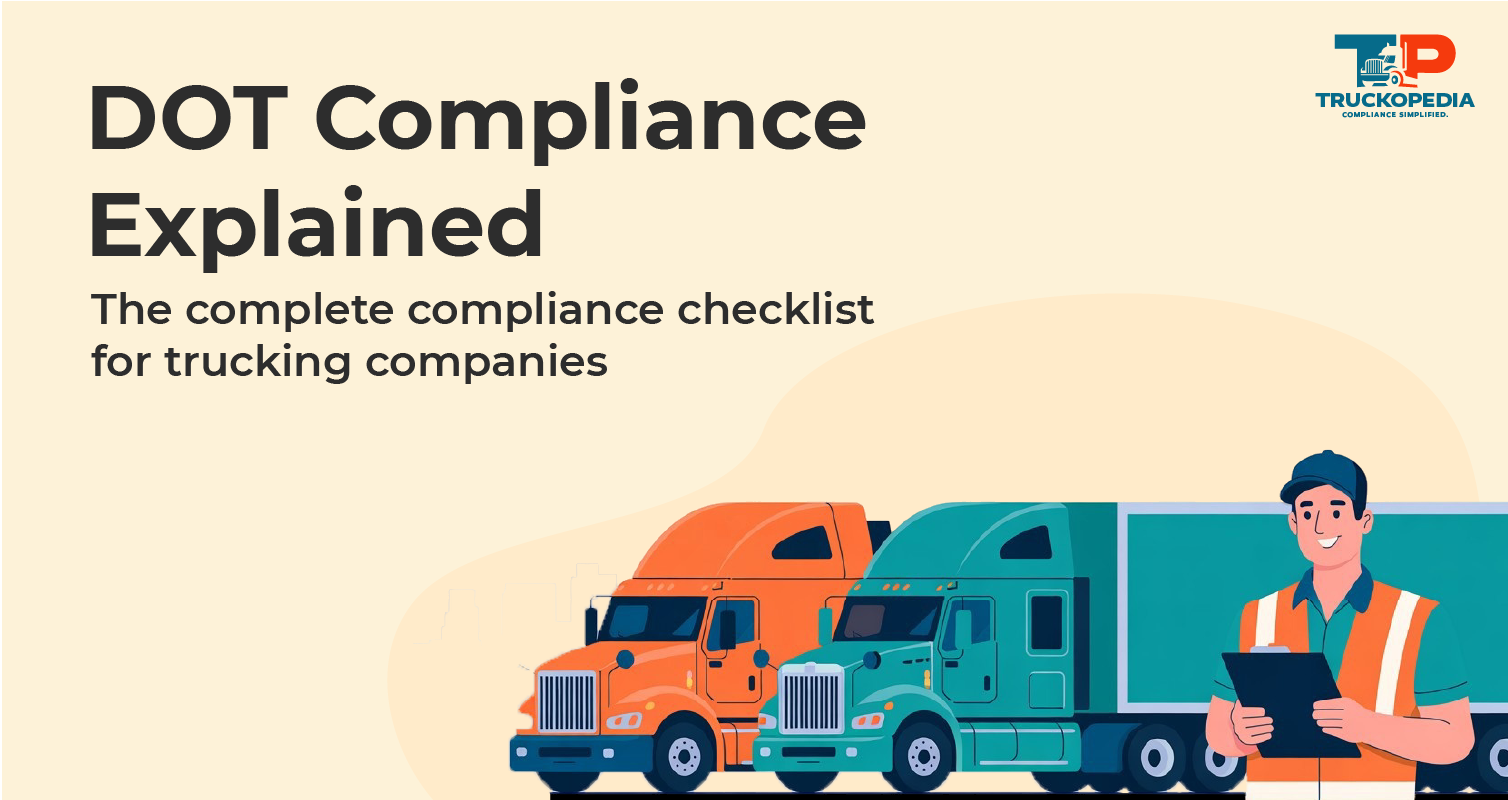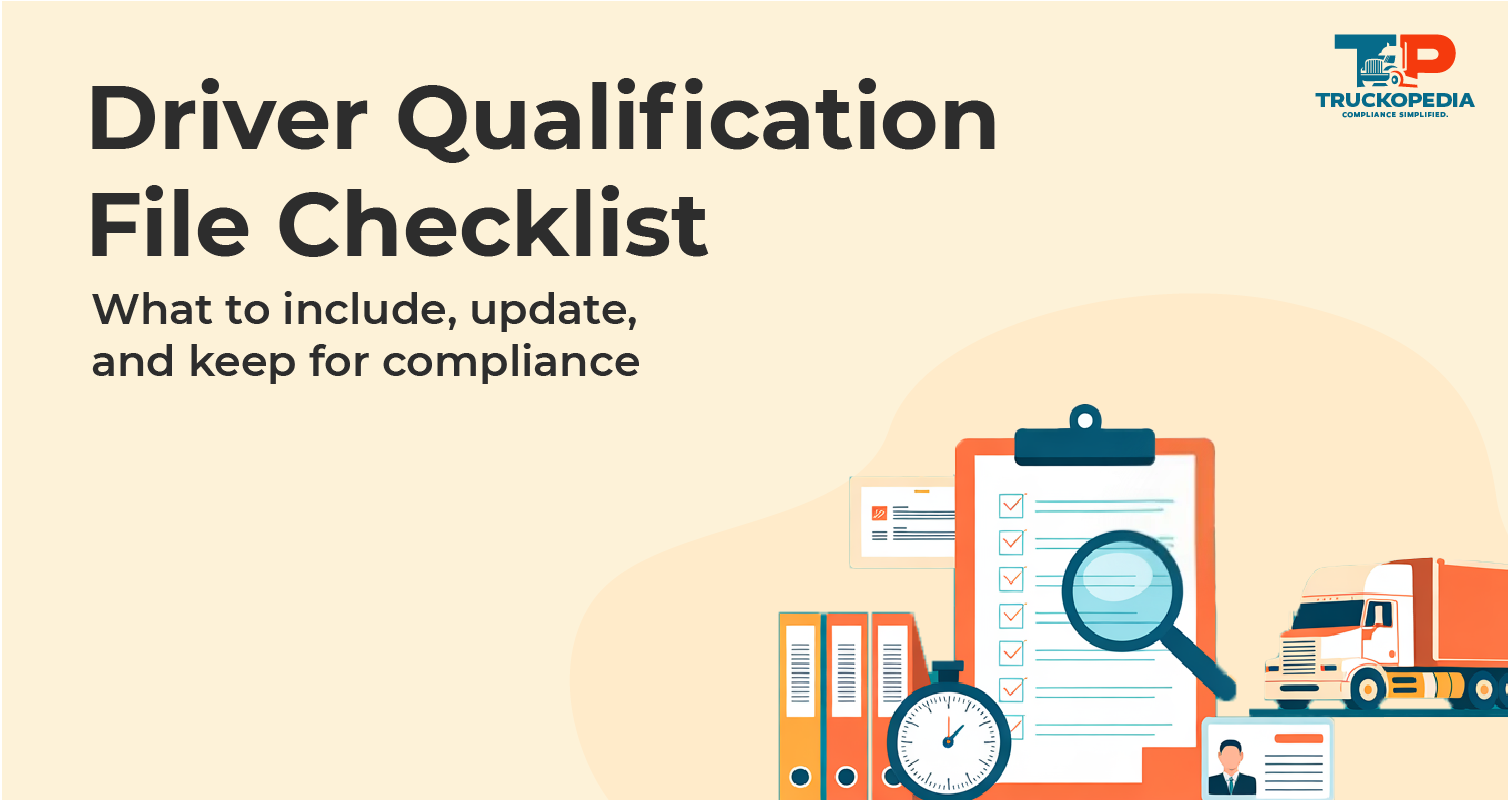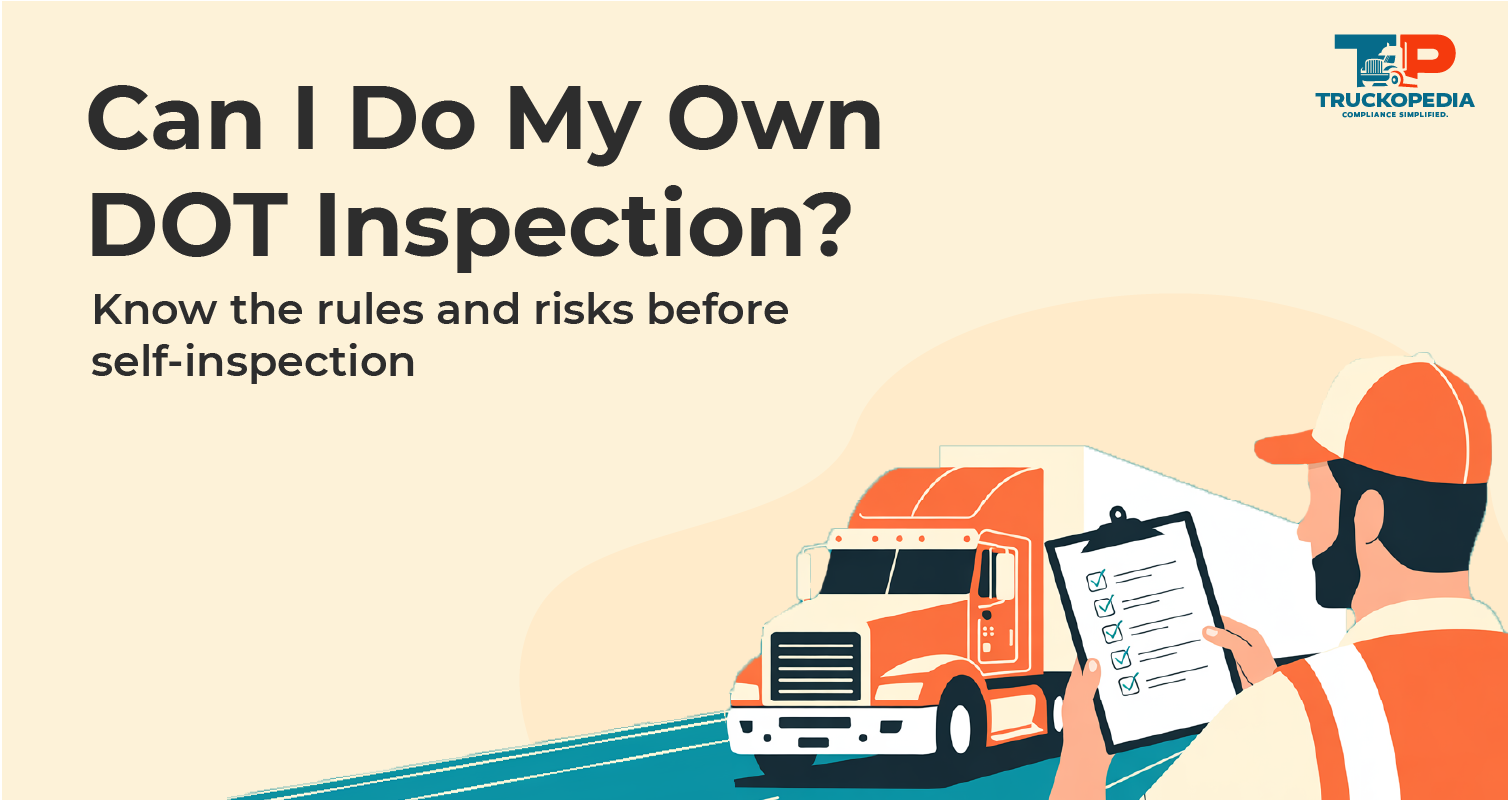Many drivers ask the same question: “Do I need a DOT Number?” And the confusion is real. A lot of people think a USDOT Number is only for long-haul trucking companies or drivers operating commercially, which isn’t always true.
Depending on what you drive, where you operate, and what you transport, you may need a USDOT Number even if you run a small business, operate a single truck, or drive a vehicle for personal or occasional use.
A USDOT Number is required for anyone who operates certain types of commercial motor vehicles used to transport passengers or haul cargo, whether you’re an owner-operator, a local business, or someone renting a truck for a specific job. Also, DOT number requirements can be as per state or federal regulations.
In this guide, we’ll explain who needs a USDOT Number, when it’s required, and why it’s important for ensuring safety and legal compliance in commercial transportation.
What is a USDOT Number?
The USDOT number acts as a unique identifier for a carrier and is used by the FMCSA to track and evaluate the company’s safety performance. It helps the FMCSA to collect essential data from inspections, compliance reviews, audits, and crash investigations to ensure ongoing safety and regulatory compliance are always in place.
A complete guide on the USDOT number
You must have a USDOT Number if you operate commercial vehicles that transport passengers or haul cargo across state lines (interstate commerce). You also need one if you operate intrastate and haul hazardous materials that require a federal safety permit.
To determine whether your vehicle or fleet requires a USDOT number depends on the vehicle type, weight, passenger capacity, nature of cargo, and the type of commerce (interstate or intrastate).
Who needs a DOT number?
You must obtain a USDOT number if your company operates a vehicle that meets any of the following conditions:
1. If you haul hazardous materials in quantities that require a federal safety permit, you need a USDOT Number, even if you operate only within one state. (refer to 49 CFR 385.403).
2. It has a gross vehicle weight rating (GVWR), gross combination weight rating (GCWR), or gross weight of 10,001 pounds (4,536 kg) or more, whichever is higher.
Note: Don’t forget to account for trailers, as it’s a common mistake. USDOT requirements consider the combined weight of your vehicle and trailer. For example, if you have a 6,000-pound truck towing a 5,000-pound trailer at maximum capacity, the total Gross Combination Weight Rating (GCWR) becomes 11,000 pounds, which now qualifies for a USDOT number.
3. You need a USDOT Number if your vehicle is designed or used to transport:
- More than 8 passengers (including the driver) for compensation
- More than 15 passengers (including the driver) without compensation
This applies to vans, shuttles, church buses, limos, and similar vehicles.
4. It is used in interstate commerce, which includes:
- Transportation between a location in one state and a location in another state (or outside the USA).
- Movement between two points within a state that passes through another state or outside the U.S.
- Transportation between two locations within a state as part of a trip that begins or ends outside the state or the U.S.
USDOT numbers: Eligibility, rules, and state differences
USDOT numbers are governed by regulations that are constantly evolving, and individual states may have additional rules. While federal requirements apply nationwide, it’s important to be aware of state-specific variations. A USDOT number is issued by the Federal Motor Carrier Safety Administration (FMCSA) to qualifying commercial vehicles, such as trucks or vans. Not every vehicle automatically requires one, and eligibility depends on factors like vehicle weight, type of cargo, and passenger capacity.
Commercial vehicles that require a USDOT number must display the company name and USDOT number on both sides of the vehicle’s power unit. The markings should be in a contrasting color and clearly visible from at least 50 feet away when the vehicle is parked. These rules apply whether a company operates a single truck or a large fleet. Although penalties for non-compliance may vary by state, all states must follow federal requirements.
USDOT number requirements: Size and display rules
A company only needs one USDOT Number for all its eligible vehicles. The number is tied to the business entity, not individual trucks, and it cannot be sold, transferred, or reassigned if the company or vehicles change ownership.
To keep your USDOT Number active, you must update your company information by filing Form MCS-150 every 24 months. If you fail to update or maintain your USDOT registration, the FMCSA can issue fines, suspend your operations, or place your vehicles out of service.
There is no fee to apply for a USDOT Number. You can register directly through the FMCSA’s SAFER system.
States that require a USDOT number
In addition to federal requirements, several states also mandate a USDOT Number for commercial motor vehicles operating intrastate (within the same state). This means that even if you don’t cross state lines, you may still need to register for a USDOT Number depending on your state’s regulations. These rules apply to commercial motor vehicles that meet the state’s weight, passenger, or hazardous material thresholds.
The following states currently require a USDOT Number for intrastate commercial carriers:
- Alabama
- Alaska
- Arizona
- California
- Colorado
- Connecticut
- Delaware
- Florida
- Georgia
- Hawaii
- Idaho
- Indiana
- Iowa
- Kansas
- Kentucky
- Maine
- Maryland
- Massachusetts
- Michigan
- Minnesota
- Missouri
- Montana
- New Jersey
- New York
- Nebraska
- Nevada
- North Carolina
- Ohio
- Oklahoma
- Oregon
- Pennsylvania
- Puerto Rico
- South Carolina
- Texas
- Utah
- Washington
- West Virginia
- Wisconsin
- Wyoming
Some states have their own USDOT regulations, similar to how state OSHA rules exist alongside federal OSHA standards. While many assume that a USDOT number isn’t required in these states, the lack of enforcement does not mean it’s exempt. The USDOT number is a federal requirement and applies to all commercial motor vehicles that meet the criteria.
However, certain individuals and entities are exempt from obtaining a USDOT number and are not required to register.
Are you exempt from a USDOT Number?
Do you need a USDOT number for personal use?
No. In most cases, personal-use vehicles do not require a USDOT number. This is because typical personal vehicles rarely carry nine or more passengers or haul 10,000 pounds or more of cargo.
However, some vehicles that aren’t traditional semi-trucks may still need a USDOT number, including:
- Gooseneck trailers: If the trailer itself weighs 10,000 pounds or more, a USDOT number is required, regardless of whether the cargo is commercial. These trailers are sometimes used for moving personal belongings or hauling equipment.
- Passenger vans: Vehicles transporting nine or more passengers may require a USDOT number. This often applies to organizations like churches, nonprofits, and local clubs that regularly transport people.
- Farm vehicles and equipment: Some states mandate a USDOT number for certain types of farm equipment, while others do not. Always check your state regulations before operating heavy farm machinery.
- Landscaping and lawn care vehicles: Commercial use of lawn or landscaping equipment may trigger the need for a USDOT number, depending on state laws.
Even if your vehicle use is primarily personal and you don’t plan to cross state lines, it’s important to review local and state regulations before operating these types of vehicles.
USDOT Numbers: Monitoring safety and regulatory compliance
In summary, a USDOT number is more than just a regulatory requirement checkbox—it’s the foundation of how the FMCSA monitors safety, accountability, and compliance across the transportation industry. Whether you operate a single truck, a large fleet, or transport specialized cargo or passengers, determining whether your vehicles require a USDOT number is essential.
Having an active USDOT Number helps you:
- Stay compliant with federal and state regulations
- Maintain accurate safety and inspection records
- Avoid penalties, out-of-service orders, and enforcement issues
- Present a professional and credible operation to shippers, brokers, and partners
All in all, securing a USDOT number when needed does more than meeting legal regulations as you also lay the foundation for protecting general public interests, your drivers, your trucking business, and smooth sailing operations.
Frequently asked questions on the USDOT number
Do I need a DOT number for a rental truck?
You don’t need a DOT number if you’re renting a truck for personal, non-commercial use—such as moving your household items. However, a DOT number is required if the truck is used for commercial purposes, especially when it meets any of the following conditions:
- Has a Gross Vehicle Weight Rating (GVWR) of 10,001 pounds or more
- Operates across state lines (interstate commerce)
- Transports hazardous materials requiring a safety permit
- Carries 15 or more passengers, including the driver
Do I need a CDL to get a DOT number?
No, you don’t need a Commercial Driver’s License (CDL) to obtain a DOT number. However, the requirements for a DOT number and a CDL depend on the type of vehicle and how it’s used. A DOT number identifies a company that operates commercial vehicles, while a CDL authorizes an individual to drive specific types of commercial vehicles. In general, companies need a DOT number to operate commercially, and drivers need a CDL to legally operate large or specialized commercial trucks.
Do I need a DOT number for intrastate?
No, a federal DOT number is not required if you operate solely within one state (intrastate commerce). However, most states have their own DOT registration or permit requirements for intrastate carriers. In some cases, you may still need a state-level DOT number. Therefore, it’s important to verify the specific requirements with your state’s Department of Transportation before operating.
Do I need a different DOT number for each truck?
No, you don’t need a separate DOT number for each truck. If all your trucks operate under a single carrier or business entity, one DOT number is enough. The FMCSA issues a single DOT number to each motor carrier or business entity as an unique identifier, and that number applies to all commercial vehicles operating under the same authority. The same DOT number must be displayed on every truck in the fleet. However, if you operate multiple, independent trucking businesses or carriers, each one will need its own DOT number.
Can I get a DOT number without a truck?
Yes, you can get a USDOT number without owning a truck. However, you must have a legitimate business purpose that requires registration under the FMCSA.
You don’t need to have a truck at the time of applying, but you must operate or plan to operate a business that falls under DOT regulations. This includes:
- A carrier business preparing to operate but hasn’t purchased or leased vehicles yet.
- A broker or freight forwarder that needs a USDOT number for registration purposes, even if they don’t operate vehicles directly.
- A new trucking company setting up FMCSA compliance before acquiring its first truck.



